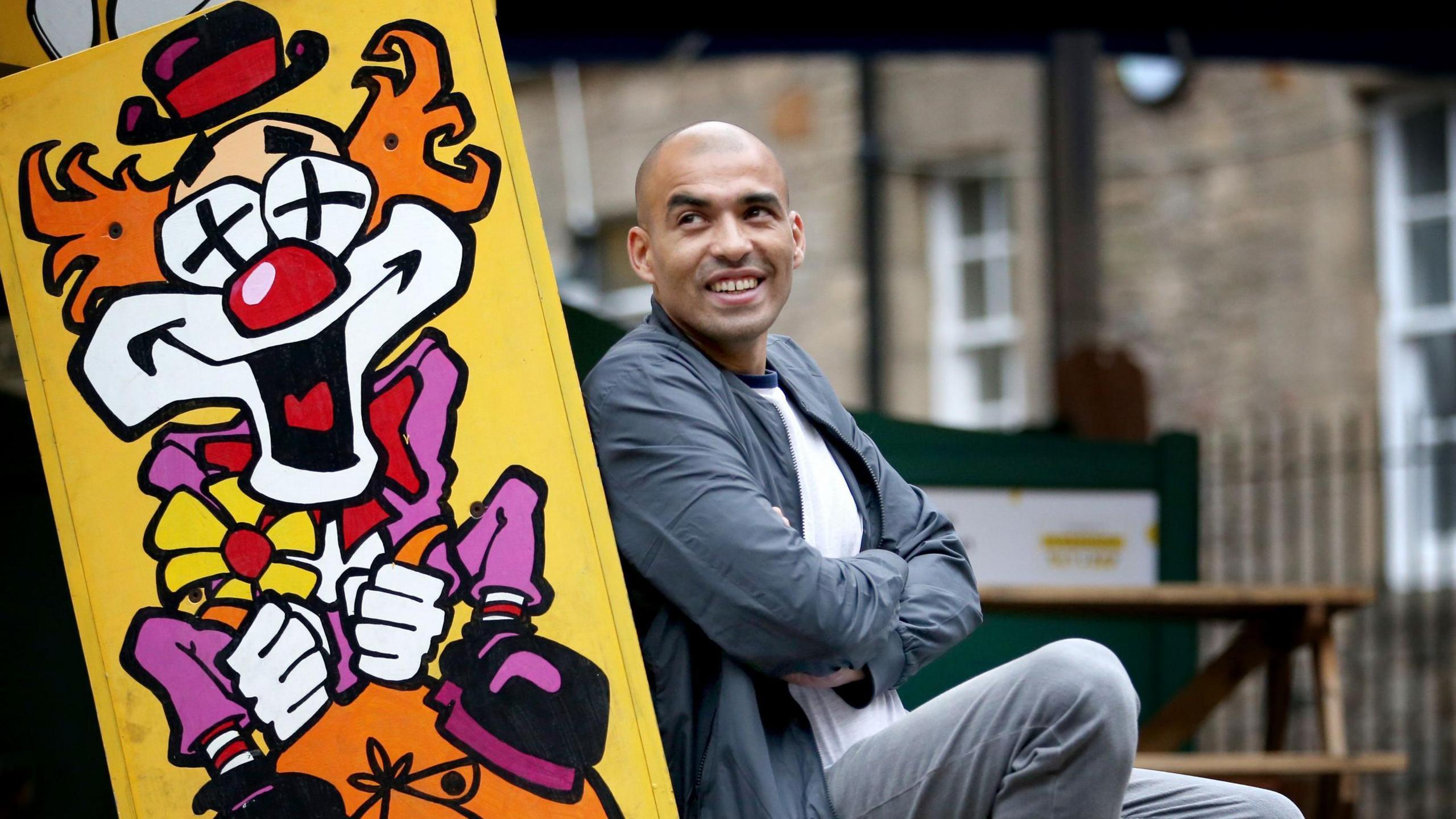They're making sex jokes in Saudi: Inside the controversial comedy festival
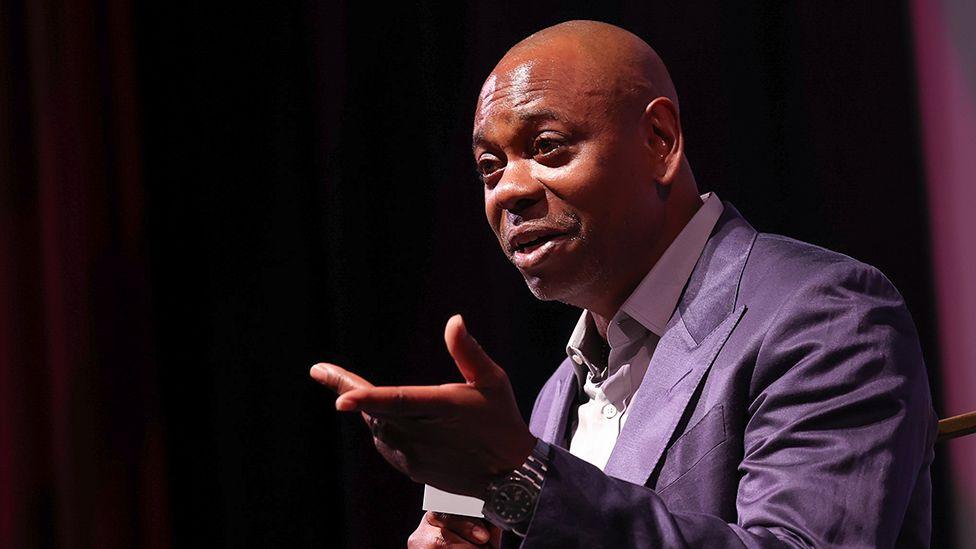
Dave Chappelle is one of the A-listers performing at the Riyadh Comedy Festival
- Published
"There were sex jokes, and wife jokes. It's really unusual to see this kind of comedy here in Saudi Arabia."
That's how one ex-pat summed up the performances she's seen, at the first ever Riyadh Comedy Festival.
"The response was amazing, I've never seen such enthusiasm," she said, after sets by American stars Dave Chappelle and Bill Burr.
The woman - whom we're calling Sara - said the comedians avoided discussing Saudi Arabia's controversial human rights record. But that didn't particularly bother her.
"People here don't care about those topics," she said. "If they did, they wouldn't live here."
Outside Saudi Arabia, there are very different perspectives.
Famous comedians such as Jimmy Carr, Jack Whitehall, Kevin Hart, Russell Peters and Omid Djalili have been intensely criticised by fellow artists for agreeing to perform at the festival. Others say they turned down invitations.
On Friday, one of the few female comedians on the bill, lesbian stand-up Jessica Kirson, apologised for taking part, external in the event, telling The Hollywood Reporter she would be donating her fee to a human rights organisation.
But some argued it’s a more nuanced picture. While human rights groups have a host of concerns about Saudi Arabia, the country has attempted to transform its image in recent years.
With the festival in full swing, we’ve been speaking to fans and comedians to find out what's actually happening on the ground - and how people have reacted.
What's being said...
The Riyadh Comedy Festival kicked off last weekend, with an all-star - and primarily male - line-up, external.
One of the first fans through the doors was Zain, not his real name. He attended Omid Djalili’s and Bill Burr’s sets with friends, and is booked in to see Jimmy Carr next week. The sets included "profane content", with jokes about gay and trans people, he said.
"The opening act for Bill Burr included a ten-minute segment which was all about sex."
Zain, who lives in Riyadh, said he was shocked to hear jokes like this, in a country which is known for being ultra-conservative socially, and where homosexuality remains illegal. The country imposes the death penalty for same-sex relationships, according to the International Lesbian, Gay, Bisexual, Trans and Intersex Association.
"I can't believe people were saying this stuff in Saudi," Zain said. "Many people here haven't seen a stand-up in their lives, let alone something so explicit.”
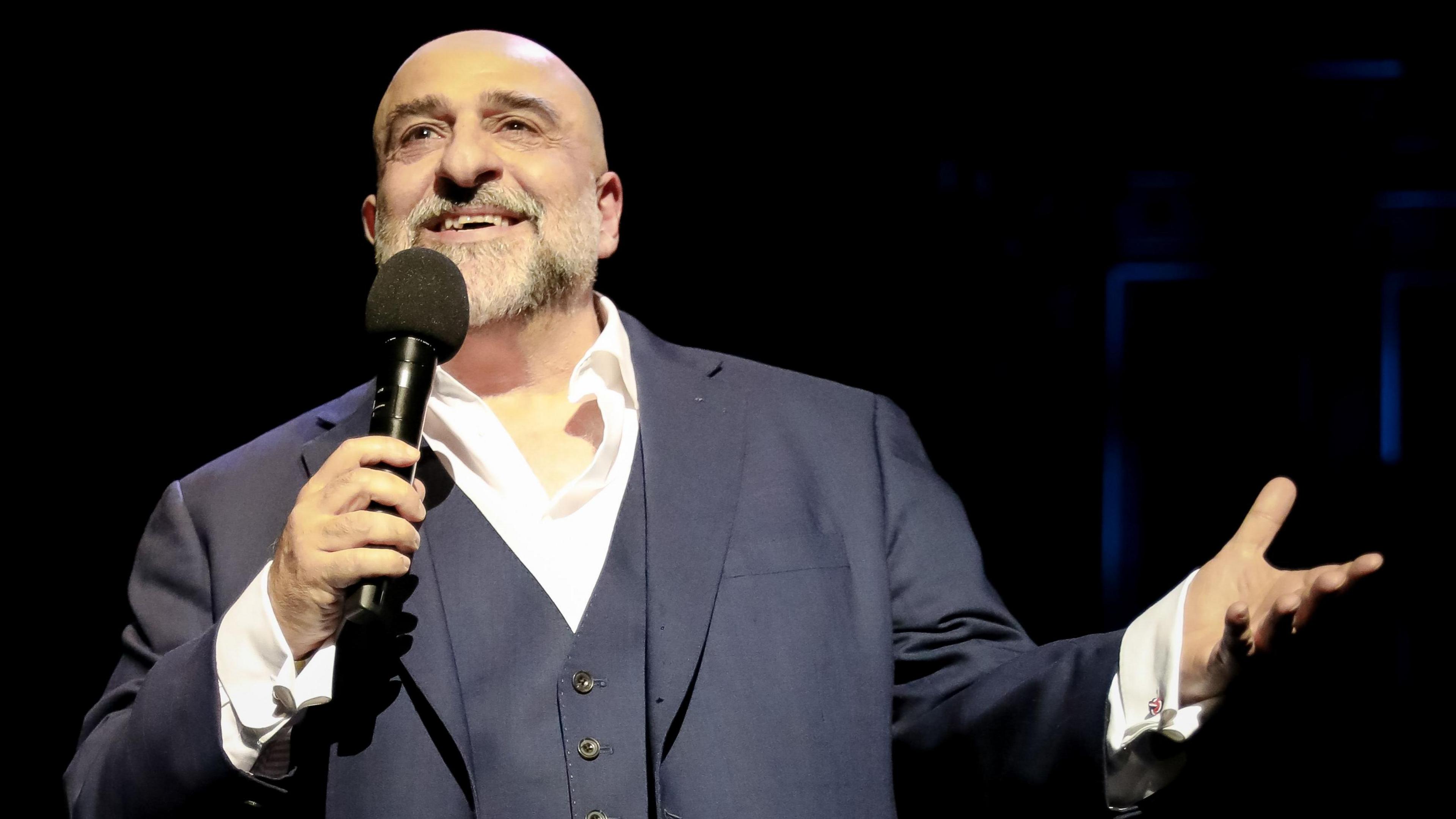
Comedian Omid Djalili had "done his homework" on the region, attendees said
But the jokes were well received, he said. "In front of me, [there was a group] of local Saudi women, and they were all laughing.”
Chappelle's set was also controversial, according to Sara, with lots of jokes about trans people.
She said it's "really unusual" to hear jokes like that in the Gulf state. "It's very haram," she said, using the Arabic word for forbidden.
Zain said that Djalili poked fun at elements of Saudi culture.
"He joked about the niqab, and women driving. He also did a skit about how people in Riyadh think they are God's gift to earth."
But Burr seemed much more nervous, he said, and stuck to tried-and-tested jokes about his wife and kids.
The audience was a broad mix of Saudi nationals and ex-pats, and there was a strong turnout, attendees said.
And what's not being said
Then there's what's not being said.
Fans we've spoken to said the shows "completely avoided" any mention of the government in Saudi Arabia.
Ahead of the festival, Human Rights Watch argued the festival, external was an attempt by the Saudi regime to "whitewash" its abuses.
The group warned Saudi dissidents, journalists, and human rights activists were being unjustly detained.
And it urged everyone performing in Riyadh to use the opportunity to speak up on topics such as human rights and free speech.
"So far I've not seen one of the comedians raise these issues, not just on stage but on social media or anywhere," Joey Shea, Saudi Arabia researcher at Human Rights Watch, told BBC News. "It's very disappointing."
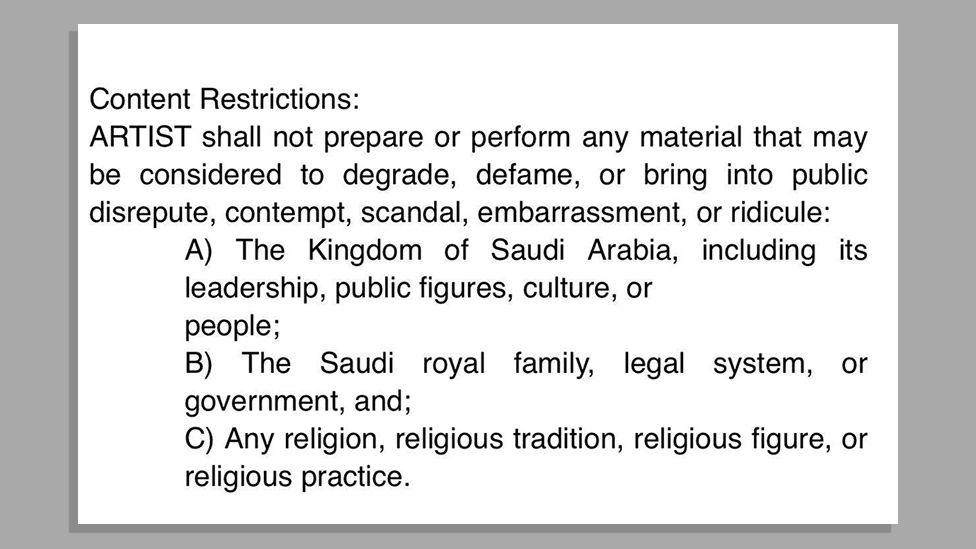
Alleged content restrictions placed on comedians in Riyadh
Comedian Atsuko Okatsuka, who said she turned down an invitation to perform, shared excerpts from a contract, external that allegedly included bans on any material that could "degrade or defame" the Saudi royal family or religion.
BBC News has not been able to independently verify the existence of such a contract.
But British comedian Rosie Holt says it's extremely rare for comedians to receive content restrictions like those.
"I've only heard it happening sometimes at gigs at universities, like don't be homophobic or racist,” she told me. “But that's the exception not the norm.”
'It's morally repugnant'
The timing of the festival also hasn’t been lost on its critics.
Its dates, from 26 September to 9 October, coincide with the seventh anniversary of the murder of the journalist Jamal Khashoggi. Khashoggi was killed while visiting the Saudi consulate in Istanbul, Turkey, and his body cut up.
A US intelligence report found Saudi Crown Prince Mohammed bin Salman approved his murder. Saudi Arabia has rejected that report, and the crown prince, who is effectively the kingdom's ruler, has denied any role in the murder.
"The same guy that's gonna pay [the comedians] is the same guy that paid that guy to bone-saw Jamal Khashoggi and put him in a [expletive] suitcase," said US comic Marc Maron, in a standup clip that appears to take aim at Mohammed bin Salman.
Holt said that if comedians were going to go to Riyadh and make jokes about the state, and "call out Khashoggi", then "I'd say fair play to them - but they won't".
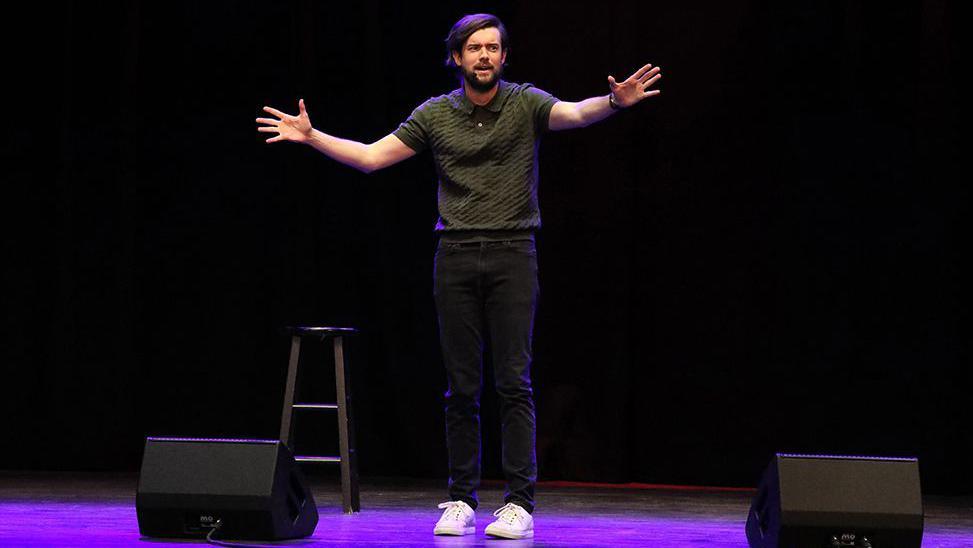
Jack Whitehall will take to the stage in Riyadh next week
"There's that old saying, that comedy speaks truth to power," she said. "A lot of these comedians have been huge defenders of free speech, and to go and perform in Saudi Arabia, where free speech is so heavily curtailed, is extraordinary. It's morally repugnant."
Alex Falcone, a comedian and TikTokker from LA, acknowledged that free speech had also come under fire in the US. But he said it was the fact the festival is government-backed that made him most uncomfortable.
"There's a difference in performing in a country and for a country. I would not do a festival if it was being paid for by the "Trump is a great guy" department," he said.
Saudi Arabia's General Entertainment Authority, which announced the festival, did not immediately respond to a request for comment. The Saudi Embassy in London has been approached for a comment.
Chappelle, Djalili, Burr, Whitehall and Carr did not respond to BBC News.
'They're paying me to look the other way'
Some comedians have been clear about what's drawn them to Saudi - money.
"They're paying me enough money to look the other way,” US comedian Tim Dillon said on a podcast.
Dillon, who says he was fired, external from the festival following that podcast appearance, also claimed he had been offered $375,000 (£278,000) for his set, and that some of his peers were offered millions.
Others have also spoken about the large fees.
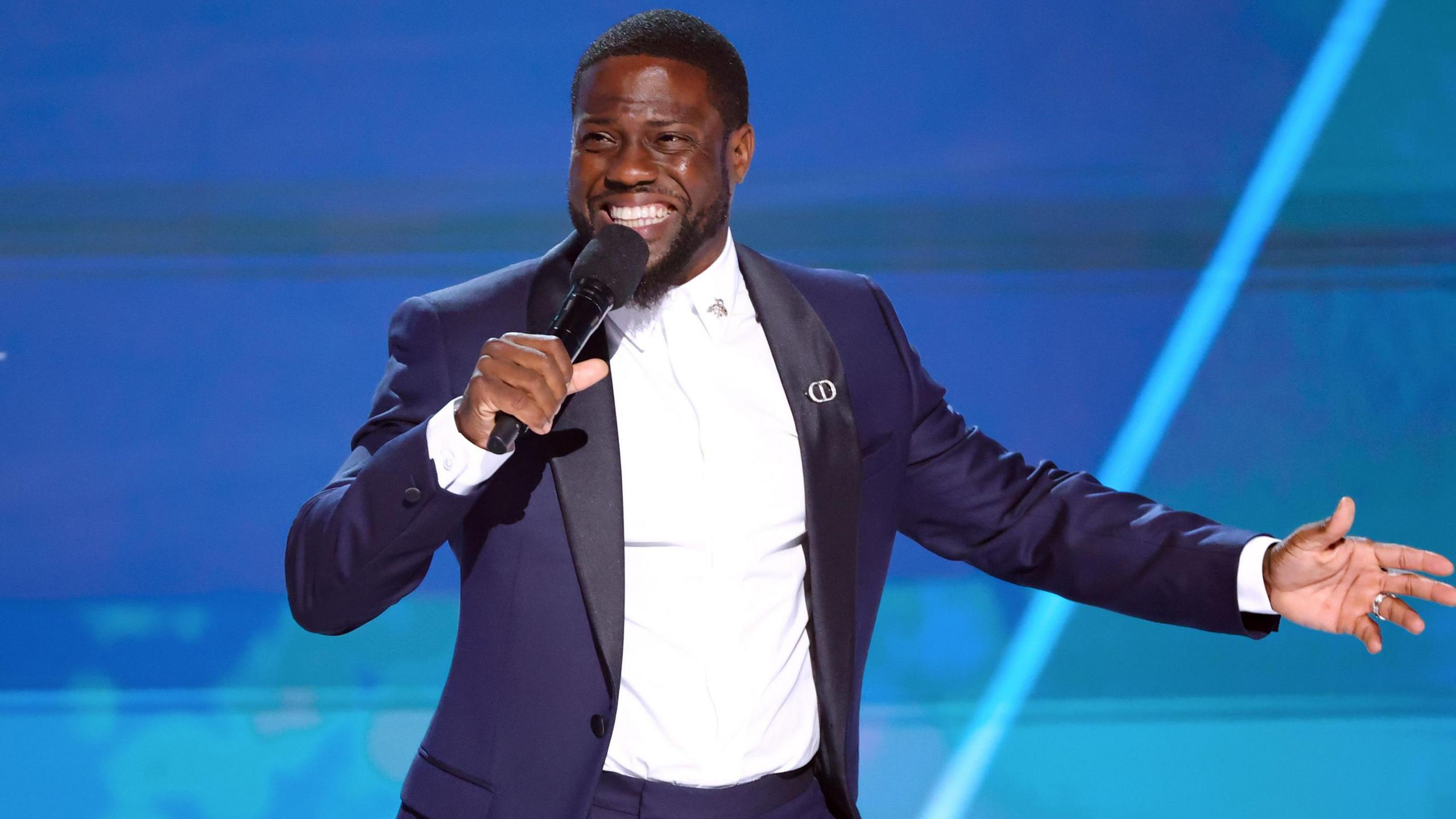
The line-up also includes American superstar Kevin Hart, who performed earlier this week
US star Shane Gillis said on his podcast, external he had declined a "significant" offer to perform at the event. "I took a principled stand," he said.
Fellow comedians have taken a dim view of their peers for "selling out".
"No one goes into comedy for the paycheque," says Holt.
"The only people who are being invited are people who already very successful," added Falcone. "This has not been a tough year for Kevin Hart."
Comedians and musicians have often performed at private gigs and corporate parties.
"The difference,” says entertainment journalist Natalie Jamieson, “is that those events tend not to be disclosed, or receive such publicity. The outrage is happening now because this is happening so publicly."
'People here are excited'
It's not only comedians who have taken up large sums of money from the Saudi government in recent years.
As a nation that has been heavily dependent on oil, Saudi Arabia is working to diversify itself economically, socially and culturally.
Its Vision 2030 plan, spearheaded by the crown prince, includes funnelling money into sectors such as tourism, entertainment, and sports.
In recent years, Saudi Arabia has won hosting rights for several major international events, including the 2034 men's football World Cup.
Last month, gaming giant Electronic Arts (EA) was bought by a consortium spearheaded by Saudi Arabia's Public Investment Fund. The fund's portfolio also includes Newcastle United and the LIV Golf franchise.
"I'm sure there are lots of people in the West who don't approve, but people here are really excited about the transformation programme," said Sara. "Saudi Arabia is trying to be an entertainment centre, and things like this comedy festival really help. There's a lot of enthusiasm here, especially among young Saudis."
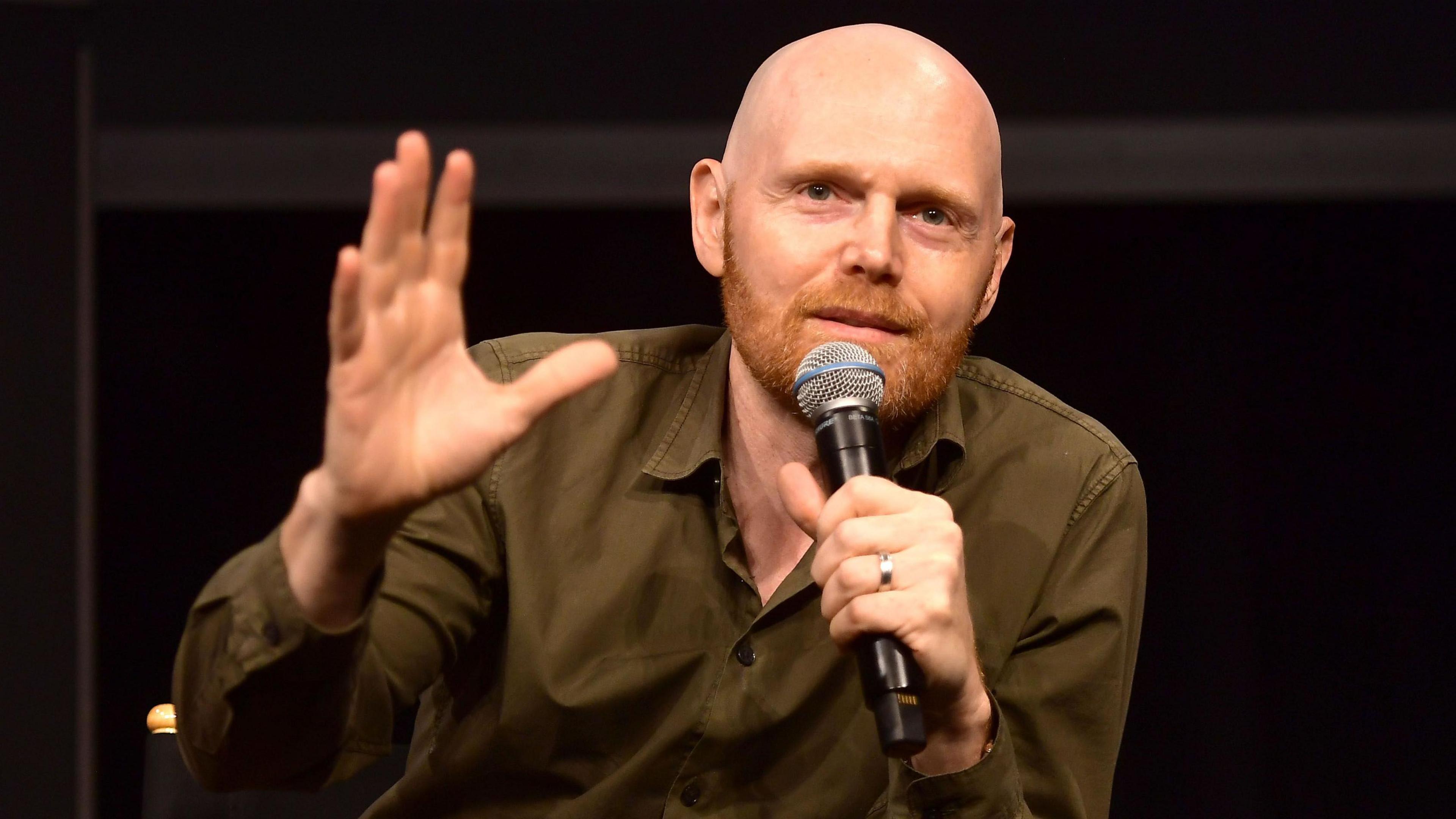
Bill Burr called the Riyadh festival "one of the top three experiences I've had"
Speaking on his podcast this week, Bill Burr defended his Riyadh performance, external in the face of the backlash.
"The comedians that I've been talking to are saying, 'Dude, you can feel [the audience] wanted it. They want to see real stand-up comedy’," he said. "I think it's going to lead to a lot of positive things."
Whether the festival truly permits diverse perspectives to be aired is up for debate.
Zain acknowledges there is no getting away from the fact the comedians in Riyadh won’t be making jokes about the state or its leaders, as they would elsewhere.
“So you can criticise them for that,” he said. But holding an event like this was helping to “open the eyes of the population”.
“Every Saudi who attends a show like this will learn something. You had gay jokes, trans jokes, sex jokes, they're being really open about everything - aside from the government."
- Published21 July 2022
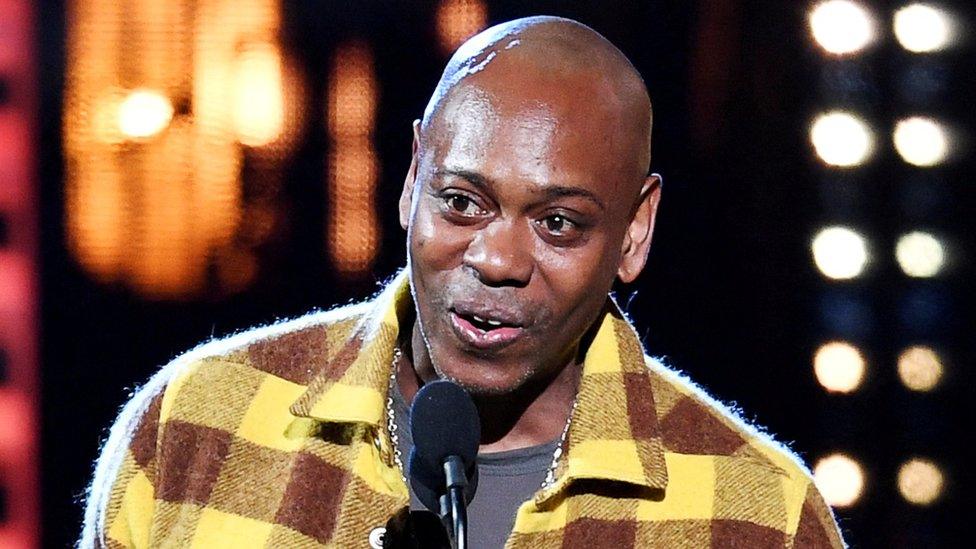
- Published9 February 2022
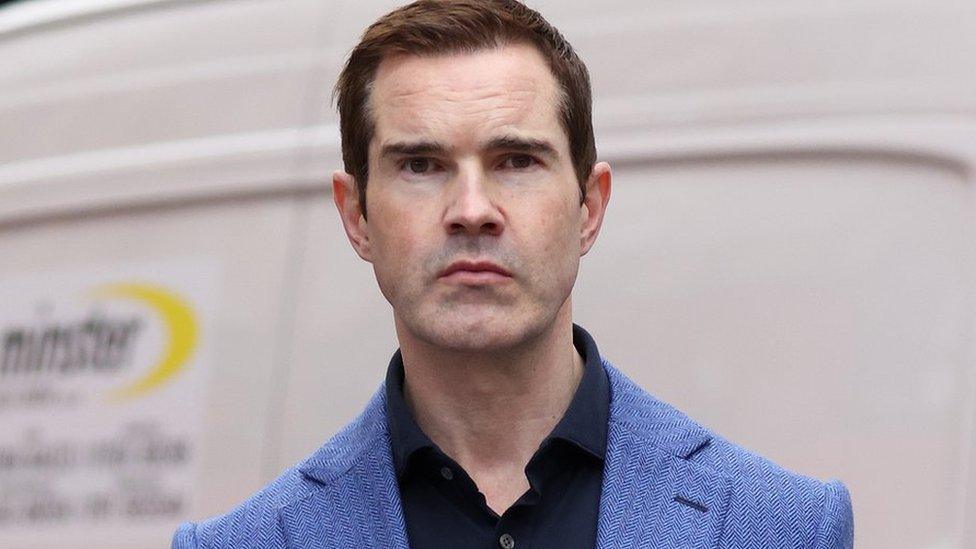
- Published22 July
